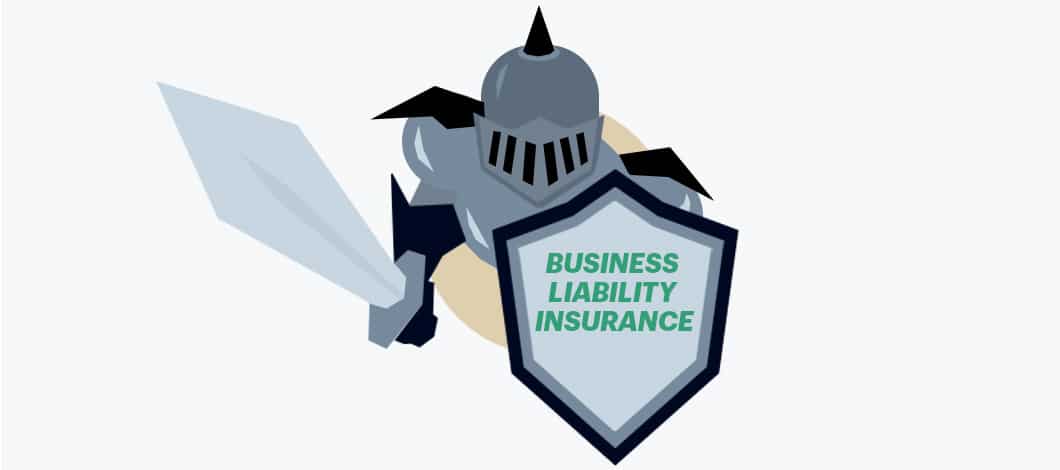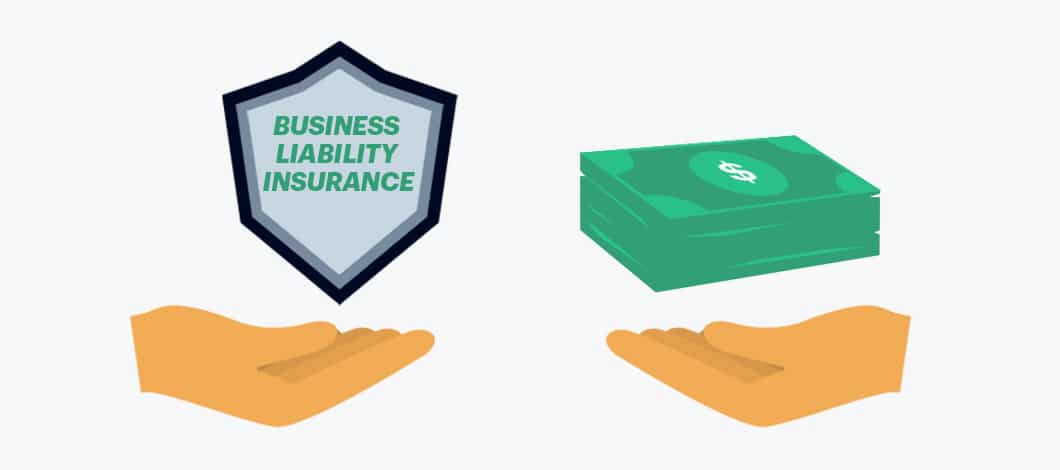What is business liability insurance?
Learn about different types of coverage, when you need them and how to find the right policy.
What Is Business Liability Insurance?
Business liability insurance refers to a number of different types of policies that protect companies and business owners in the event of a lawsuit alleging liability (legal responsibility) for injury, illness or economic loss.
Different types of business insurance policies protect against different types of claims. Some protect against claims from nonemployees, while others protect against employee claims. Some policies protect against claims involving products, while others involve services. There also are policies which protect against claims resulting from cybersecurity problems, such as data breaches.
Business liability policies share general characteristics of other insurance policies. Liability policies have scopes, deductibles and limits which define what they cover, when they apply and how much they pay out. Their prices are quoted as monthly or annual premiums.

Types of Business Liability Insurance
Small business liability insurance comes in several varieties, including:
- General liability insurance
- Employer liability insurance
- Product liability insurance
- Professional liability insurance
- Employment practices liability insurance
- Cyber liability insurance
Each of these business liability insurance coverage options has its own scope.
General Liability Insurance
General liability insurance is sold under names such as business liability insurance and commercial general liability insurance. It covers you with business lawsuit insurance when non-employees file a claim alleging your responsibility for damages to persons or property from causes such as injuries, accidents or defective products. For example, if a customer trips in your store and breaks an arm, general liability insurance would cover their claims.
Some policies may cover damage claims involving the litigant’s reputation or intellectual property claim. Coverage usually includes both bills such as medical bills as well as legal expenses.
General liability insurance policies don’t cover employee injuries, which fall under the scope of worker compensation insurance. They don’t cover claims stemming from allegations about professional errors or negligence, which fall under professional liability insurance. Nor do they cover damages to your company’s own property or vehicles, which fall under commercial property or commercial vehicle insurance, respectively.
Employer Liability Insurance
Employer liability insurance covers cases where you are liable for employee injuries, illnesses or financial losses, filling a gap in worker compensation insurance. When your employees become sick or injured while working for you, their claims are normally covered under worker compensation insurance. However, worker compensation insurance claims don’t assume you are legally liable for damages, just that the damages occurred in connection with working for you.
If your employee claims you are liable, they may elect to file a separate civil lawsuit seeking more money than they would get from worker compensation. Employer liability insurance protects you in this type of situation. Some worker compensation policies include employer liability provisions, while others don’t.
Product Liability Insurance
Product liability insurance protects you from lawsuits alleging damages connected with use of a product you make, distribute or sell. The damages may involve a defective product, incorrect use of your product or a frivolous lawsuit.
Product liability insurance policies don’t cover claims involving accidents to customers, which are covered under general liability insurance. They don’t cover claims involving injuries to workers, which are covered under worker compensation insurance or employer liability insurance.
Product liability insurance doesn’t cover expenses stemming from product recalls. To cover this, you can purchase a separate type of insurance called product recall insurance.
Product liability insurance often comes with general liability insurance. Check your policy for details.
Professional Liability Insurance
Professional liability insurance may also be sold under names such as errors and omissions (E&O) insurance or professional indemnity insurance, depending on the industry. This type of insurance protects you from claims alleging losses stemming from your professional advice or service.
Professional liability insurance coverage includes claims involving allegations of bad advice, negligence or misrepresentation. For example, an accountant’s client might claim that they suffered financial loss because of bad advice.
Employment Practices Liability Insurance
Employment practices liability insurance covers legal fees and settlements which involve allegations of certain illegal practices. This type of insurance applies to claims involving allegations such as discrimination, harassment or wrongful termination.
Cyber Liability Insurance
Cyber liability insurance protects you from claims alleging your responsibility for losses related to computer security problems. For example, if you failed to take adequate security measures and your customers’ personal data was hacked as a result, your customers might file individual or class-action lawsuits against you or your company.
Cyber liability insurance is similar to but distinct from data breach insurance, which covers claims not necessarily assuming liability on your part. Some policies may include both types of coverage.
Business Liability Insurance Versus Other Forms of Business Insurance
Not all types of business insurance involve liability claims. Liability insurance involves situations where you are alleged to be legally responsible for damages, but you can get business insurance to cover losses where you aren’t responsible.
For example, worker compensation insurance can cover situations where your employees are injured even though you weren’t legally responsible. Commercial property insurance and vehicle insurance can cover losses from damages even in cases where you weren’t responsible.
Some types of business insurance policies combine liability insurance with nonliability insurance. For example, a commercial umbrella policy, also called a business owners policy (BOP), may combine general liability and employer liability insurance with worker compensation insurance and commercial auto insurance, or it may increase your coverage limits for these types of insurance.
Am I Legally Required to Carry Business Liability Insurance?
Depending on where you live, you may be required to carry certain types of business liability insurance. You normally aren’t required to carry general liability insurance. However, it may be required for a business license in certain states. If you rent property, your lease agreement may require it, and some contractors may require it to do business with you.
States generally require employers who have employees to carry worker compensation insurance, and some also require employer liability insurance. In some states, these may be bundled together, while in others, they require separate policies. To find out what you are required to carry in your state, check with your state’s department of labor or equivalent agency, or consult a professional such as an attorney.
Professional liability insurance may be required if you work in certain industries, such as health care, accounting or the legal profession. Some contractors may require you to carry professional liability insurance.
What Type of Business Liability Insurance Do I Need?
The best small business liability insurance for you depends on your needs. You may need one or more of the types of liability policies discussed above in a number of scenarios, including:
- Your customers visit you on your physical premises, exposing you to liability for injury or property damage (covered under general liability insurance)
- You have employees who might hold you liable for injuries, illnesses or property damage incurred on the job (employers’ liability insurance) or who might accuse you of illegal practices (employment practices liability insurance)
- You make, distribute or sell a product which might injure workers or customers (product liability insurance)
- You render professional advice or service which clients might allege caused them damages
- You store vital personal or financial data on a computer network which is at risk of data loss or breach (cyber liability insurance)
- You legally are required to carry employers’ liability insurance or professional liability insurance
- You need liability insurance to obtain a business license in your state
- Your lease requires liability insurance
- You seek to do business with clients or contractors who require liability insurance
These are some examples of situations where business liability insurance may be prudent or mandatory. Consult your state laws, business attorney or an insurance agent or broker to help you determine which types of insurance you need.

How Much Is Liability Insurance for a Small Business?
Business liability insurance cost varies by type, coverage limits, risk level and other factors. However, generally speaking, here is some idea what you can expect to pay for different types of liability insurance:
- General liability insurance usually costs $30 per month ($360 annually) or less, with 95% of policies costing less than $50 per month ($600 annually) and only 1% costing more than $100 monthly ($1,200 annually), according to a survey of 50,000 small business owners by insurance provider Hiscox USA
- Employer liability insurance bundled with worker compensation insurance typically costs $1,000 or less annually, according to business insurance information resource AdvisorSmith
- Product liability insurance often comes bundled with general liability insurance or when sold separately it averages 25 cents per $100 in revenue in low-risk industries such as clothing retail (for example, $2,500 for $1 million in revenue), with costs rising in higher-risk industries such as custom vehicle design, according to business intelligence provider HowMuch.net
- Professional liability insurance costs a median of $59 per month ($708 annually), according to insurance provider Insureon
- Employment practices liability insurance vary by factors such as number of employees, turnover rate and claims history, averaging $800 to $3,000 a year for a company for a business with 5 to 20 employees, according to insurance provider Fusco & Orsini Insurance Services
- Cyber liability insurance has a median cost of $140 per month ($1,675 annually), according to Insureon
These figures represent typical costs which can vary significantly. You may be able to obtain lower costs by shopping around or working with an insurance broker.
How Do You Get Business Liability Insurance?
You can take a number of approaches to shopping for business liability insurance. One way is to check if one of your current insurance providers offers business insurance services.
If you want to compare policies and prices from different business insurance companies, you can use insurance comparison websites to check around. For example, CommercialInsurance.net lets you fill out an online form indicating your insurance needs and then provides quotes from different providers in its network.
The best method to find the best policies and prices is to work with an insurance professional. Insurance sales representatives are classified as agents when they represent a single provider (captive agents) or a small number of providers (independent agents) and as brokers when they represent you to multiple providers. Generally, you will get a better range of options when working with a broker.
Get the Right Business Liability Insurance Coverage
Business liability insurance encompasses a variety of different forms of coverage, ranging from general protection to specific situations such as product, service or cyber liability.
Which type of policy is right for you depends on factors such as your industry, size and location. Investing in a policy isn’t generally expensive, but it can protect you from costly lawsuits. An insurance broker can assist you in selecting a policy suitable for your needs.
If you require funding to cover a policy or hire a broker, consider tapping into small business financing options such as a business line of credit.










